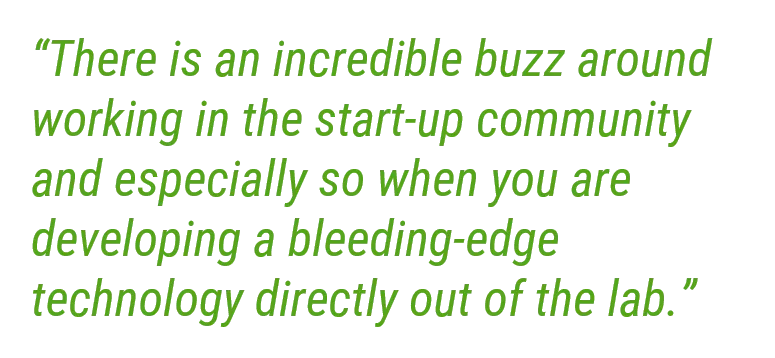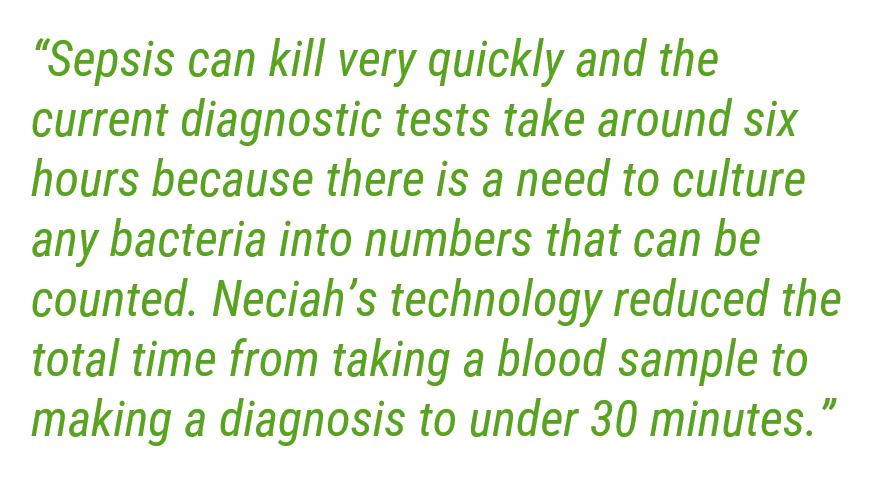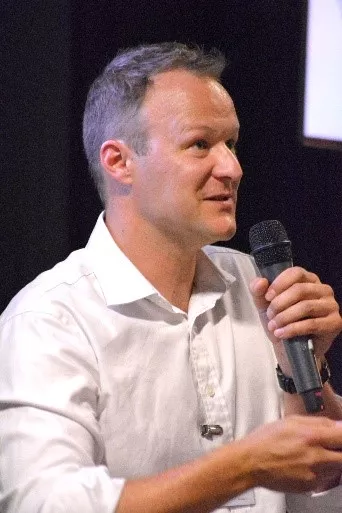
A key issue surrounding emerging technologies such as artificial intelligence (AI) is their impact on employment and the industry’s workforce. The SEMI Talent Forum, 2-3 May, 2019, in Bristol, UK, will explore new opportunities and challenges of the digital era and the industry’s need for talent and the knowledge and skills in automation, computerization and digitization to drive tech innovation.
SEMI spoke with Andy Collins, manager at Quantum Technology Enterprise Centre (QTEC), ahead of the event about the impact of emerging technologies on the future of work in the semiconductor industry.
SEMI: What are the mission and vision of QTEC in terms of workforce development, talent, diversity and inclusion?
Collins: The Vision of the Quantum Technology Enterprise Centre is to establish QTEC as a global leader in quantum entrepreneurship.
Our mission is to foster the thought leaders and entrepreneurs who will take quantum technologies out of the lab and into the real world by educating and empowering the pioneers and businesses of the future who will form the foundation, pillars and growth of the UK’s Quantum Industry.
We are creating an ecosystem of investors, individuals and companies that support the growth of early-stage, quantum technology enterprises. We have been incredibly fortunate to have recruited from all over the world. Men and women from China, Italy, Sudan, America, Poland, St. Lucia, New Zealand and Ireland have all joined our programme. This makes for an excellent working environment and gives each of the entrepreneurs we work with a truly global perspective.
SEMI: Talent is particularly important for the semiconductor industry. What is the key to the success of QTEC?
Collins: In the two and a half years QTEC has been operating, we have enjoyed great success in taking academics and giving them the skills to start up and drive forward their own deep tech businesses. Something we see consistently is that there is a shift in mindset from research to business thinking.
 In the academic environment, and this might be true of many recent graduates in science and engineering areas, we find that researchers have highly specialised expertise and a preference for exactness in both details and numbers. In the business environment the breadth of skills needed is highly varied, from negotiation and presentation skills across contract and legal considerations to financial planning and project management. Often all of these need to be applied at once with decisions being made quickly on best estimate numbers rather than exact figures. Our success comes from being able to instill these skills into the fellows in the course of helping them to start their companies. The programme is all about practical application of these skills to their start-ups and it is an easy thing to do when you have fellows who are passionate about getting their company off the ground.
In the academic environment, and this might be true of many recent graduates in science and engineering areas, we find that researchers have highly specialised expertise and a preference for exactness in both details and numbers. In the business environment the breadth of skills needed is highly varied, from negotiation and presentation skills across contract and legal considerations to financial planning and project management. Often all of these need to be applied at once with decisions being made quickly on best estimate numbers rather than exact figures. Our success comes from being able to instill these skills into the fellows in the course of helping them to start their companies. The programme is all about practical application of these skills to their start-ups and it is an easy thing to do when you have fellows who are passionate about getting their company off the ground.
SEMI: Can you tell us more about your fellowship programmes?
Collins: The QTEC programme is a year-long fellowship aimed at getting deep tech, particularly anything in the quantum technology area, out of the lab and into the commercial sector. We do this by hiring up to ten fellows a year from across the world and putting them through an intensive six to seven months of practitioner-led training workshops. After this point we start to give the fellows more space to concentrate on the business and prepare for funding rounds in front of investors.
The programme is unique in that we are fully funded by EPSRC and take no equity in the companies we help launch. In addition, we pay fellows a £28K salary, provide a £12.5K travel and consumables budget and office space in the dedicated Quantum Technology Innovation Centre in Bristol. We provide in-house support from our Enterprise Developer and Director, we allocate the fellows experienced mentors from our network and we also provide monthly contact time with two experienced entrepreneurs in residence. The programme culminates in a series of Demo Days in Bristol and London, where the fellows pitch to around 100 investors from our network.
SEMI: What is particularly exciting about QTEC?
 Collins: We are founding companies in an entirely new and transformative technology. There is an incredible buzz around working in the start-up community and especially so when you are developing a bleeding-edge technology directly out of the lab. Quantum technology is at a stage where small upstarts can still compete with and even outstrip the large tech companies. The UK enjoys a particularly strong community in this area where government, academia and industry are working closely together and collaborating. It is very easy to pick up the phone to Airbus, BT, Oxford Instruments or the National Physical Laboratory (and many others!) and ask if you can bounce some ideas off them. This makes it a real pleasure to work in the area – there is an incredible sense of mission.
Collins: We are founding companies in an entirely new and transformative technology. There is an incredible buzz around working in the start-up community and especially so when you are developing a bleeding-edge technology directly out of the lab. Quantum technology is at a stage where small upstarts can still compete with and even outstrip the large tech companies. The UK enjoys a particularly strong community in this area where government, academia and industry are working closely together and collaborating. It is very easy to pick up the phone to Airbus, BT, Oxford Instruments or the National Physical Laboratory (and many others!) and ask if you can bounce some ideas off them. This makes it a real pleasure to work in the area – there is an incredible sense of mission.
SEMI: Can you name your favourite success story or any examples?
Collins: There are many but I particularly think of Neciah Dorh, founder of Fluoretiq who went through the programme in our first year. Neciah had just graduated with his PhD in Engineering and had a great idea for testing water quality using a new kind of sensitive fluorescence technique.
Many people we speak to think that quantum technology is all about computing, but this is only one aspect where it will have impact. I myself am always excited about the many other fields in which this type of physics can show a real step change and Neciah came to us with something that drew heavily on bioscience. At the start of the first year we helped Neciah look at the technology and where it might make the most sense to apply it. Although testing for bacteria in water is a good application, after further market research Neciah quickly focussed his attention on detecting potential cases of sepsis in blood samples.
 Sepsis can kill very quickly and the current diagnostic tests take around six hours because there is a need to culture any bacteria into numbers that can be counted. Neciah’s technology reduced the total time from taking a blood sample to making a diagnosis to under 30 minutes. During the programme Neciah’s chief technical officer Josephine built and programmed the prototype device and began testing. As a team they designed a strong business case and obtained substantial Innovate UK funding. By the time the pitch day arrived Neciah had great preliminary data and a strong pitch. Fluoretiq closed its first funding round shortly thereafter and began hiring staff and developing the product. What really makes this a great success story for me is that Neciah and Josephine managed to do this while welcoming their first child that year.
Sepsis can kill very quickly and the current diagnostic tests take around six hours because there is a need to culture any bacteria into numbers that can be counted. Neciah’s technology reduced the total time from taking a blood sample to making a diagnosis to under 30 minutes. During the programme Neciah’s chief technical officer Josephine built and programmed the prototype device and began testing. As a team they designed a strong business case and obtained substantial Innovate UK funding. By the time the pitch day arrived Neciah had great preliminary data and a strong pitch. Fluoretiq closed its first funding round shortly thereafter and began hiring staff and developing the product. What really makes this a great success story for me is that Neciah and Josephine managed to do this while welcoming their first child that year.
Another of our fellows, Xiao Ai, also started a family as well as his company QLM. In both cases those companies obtained funding and have been hiring quickly. We do speak to many people who think entrepreneurship will be insanely hard work, and sometimes it can be, but if done properly and in a well thought out way there is time to fit the rest of life in as well.

SEMI: What are your expectations regarding the forum in Bristol and for the future ahead? What is the status of the semiconductor workforce development and D&I efforts?
Collins: I’m very much looking forward to the forum. One of our recent graduates went on to work at the Compound Semiconductor Catapult so I am hoping to see him there. From our perspective we want to talk about our current recruitment round for QTEC fellows. Semiconductors and related technologies underpin much of our activity, so we are hoping to spot talent and make them an offer! More broadly I want to talk about the need for business acumen being instilled in a highly technical workforce as part of their early training. Many of the financial, people and project management skills we teach are transferable and really accelerate career progression when graduates and technical staff move into the industrial field.

Andy Collins is the manager for the Quantum Technology Enterprise Centre (QTEC) at the University of Bristol. QTEC is a part of Quantum Engineering Technology Labs, a global centre for research, development and entrepreneurship in the emerging quantum technology industry and an international node for collaboration with industrial and academic world leaders, and the EPSRC UK Quantum Technology Hub Network. He manages the operational running of the Centre, providing input into and delivering all aspects of the Centre's strategy and development. Dr. Collins was previously the Industrial Research Fellow for the Bristol Centre for Functional Nanomaterials where he acted as an interface between the BCFN and their industrial partners.
Serena Brischetto is a marketing and communications manager at SEMI Europe.